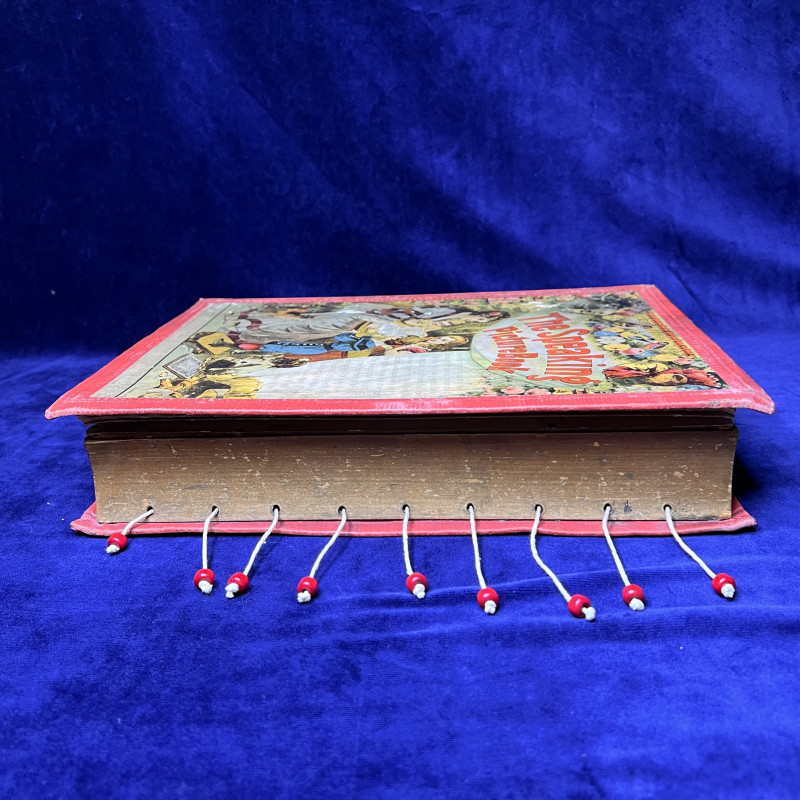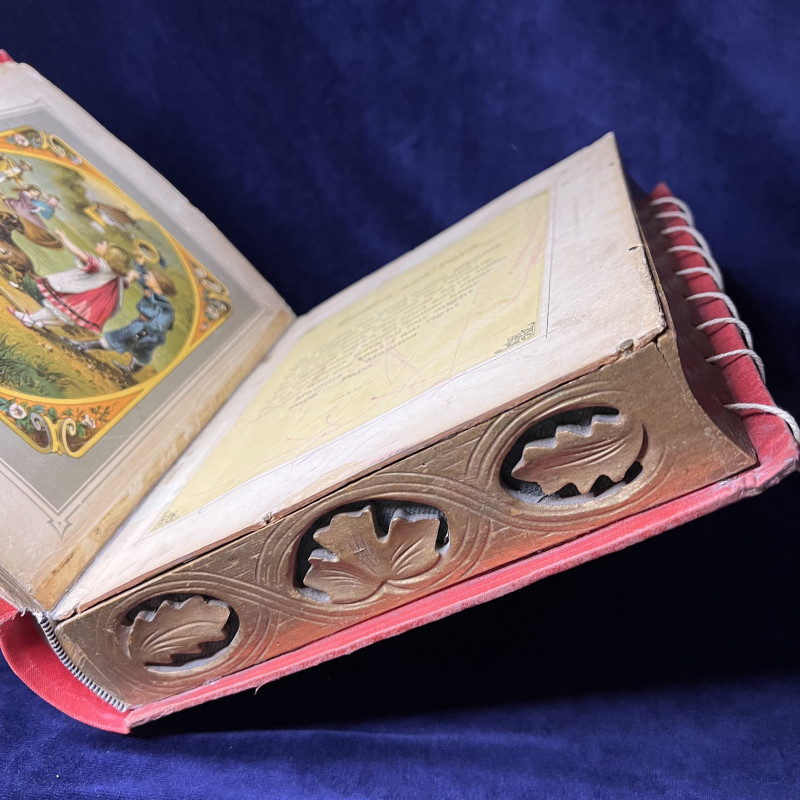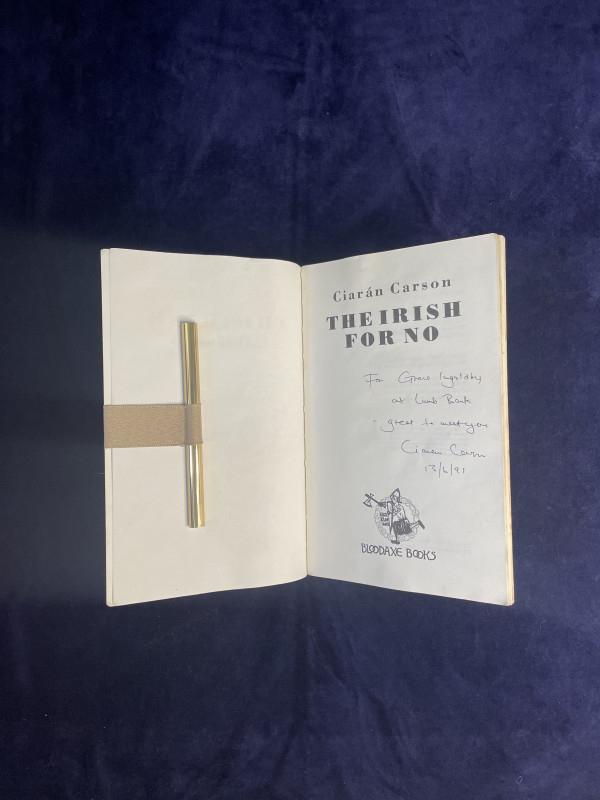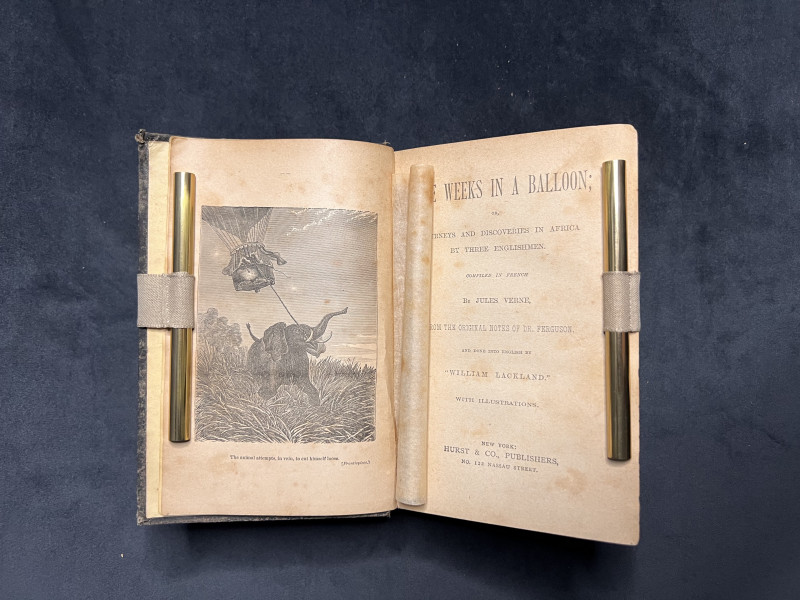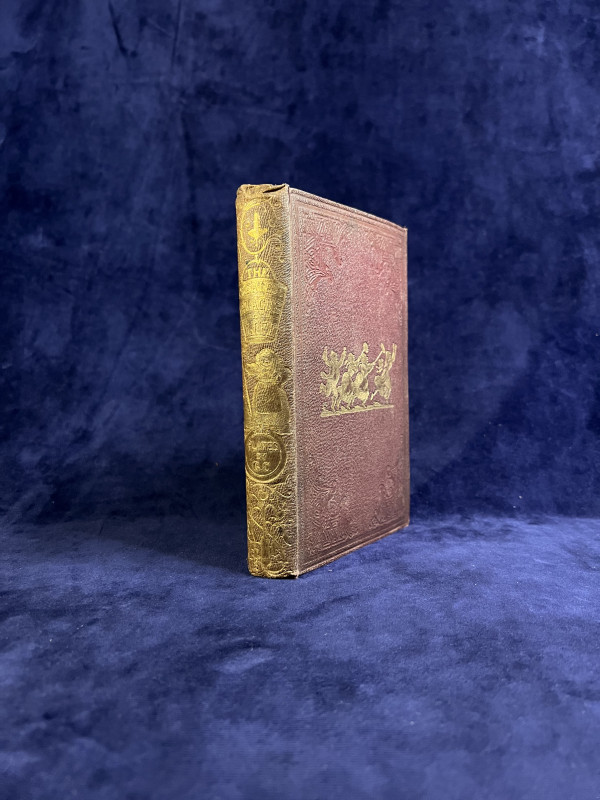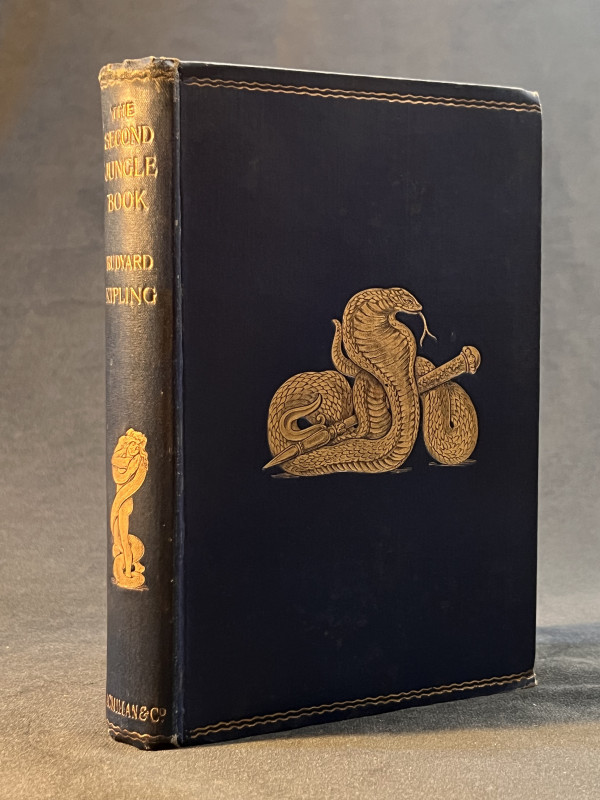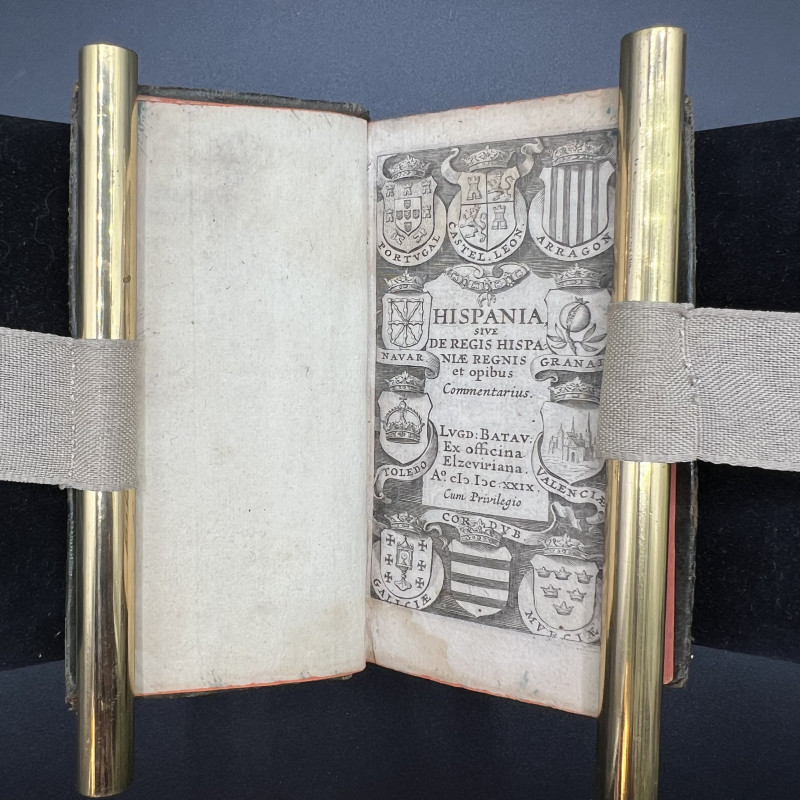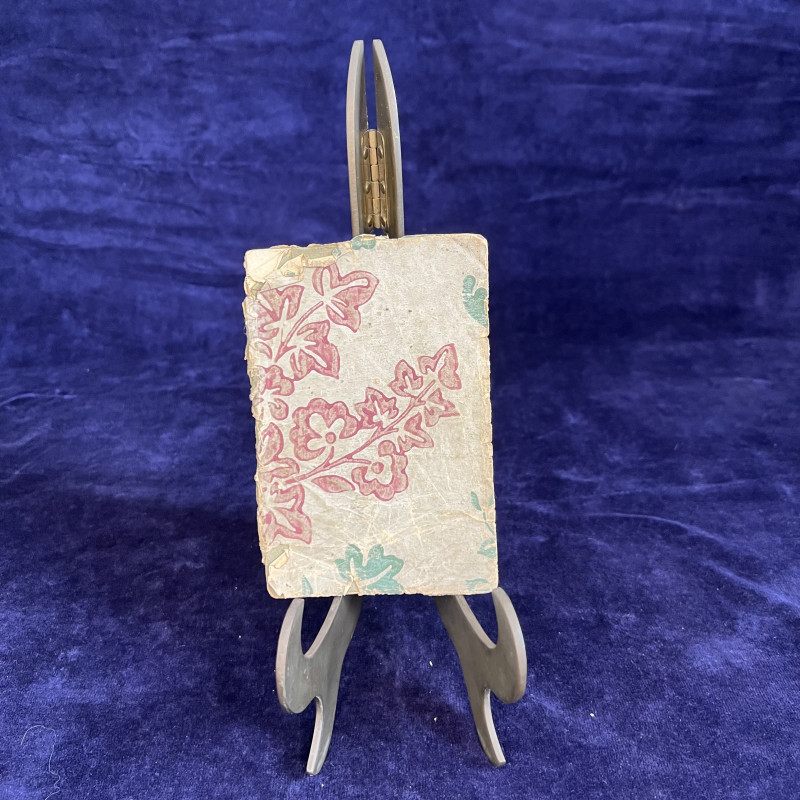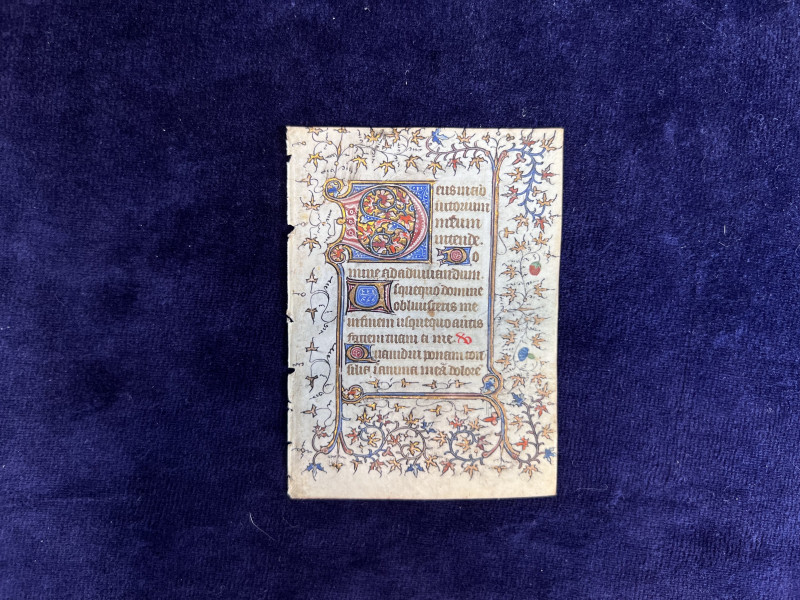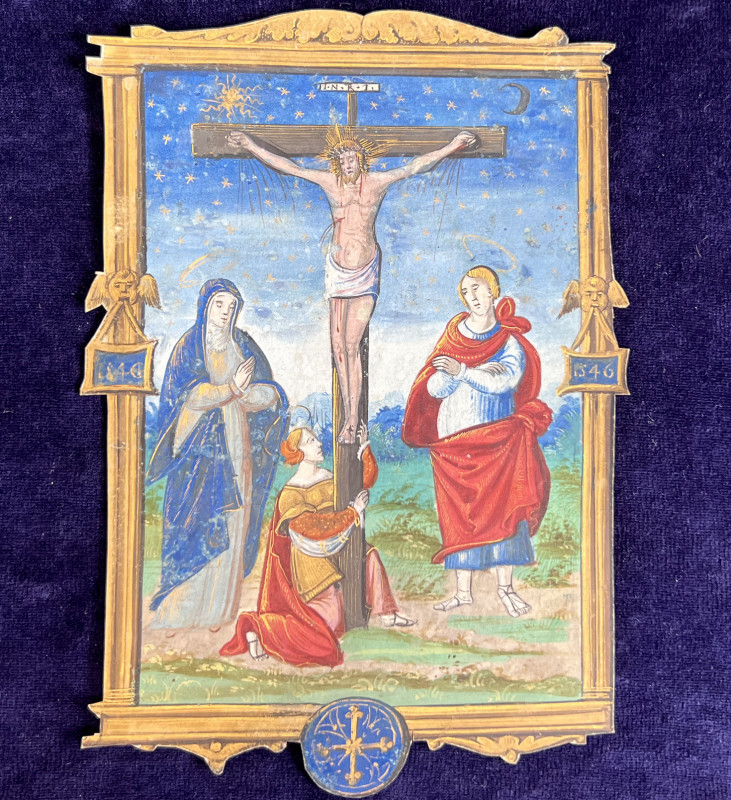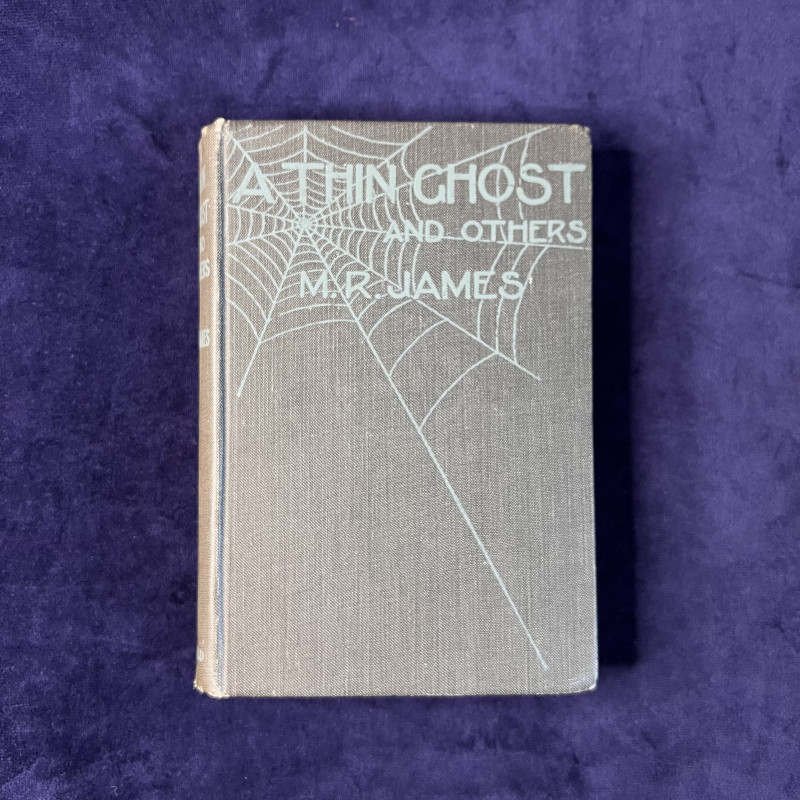The Speaking Picture Book: A new Picture Book with Characteristically Voices.
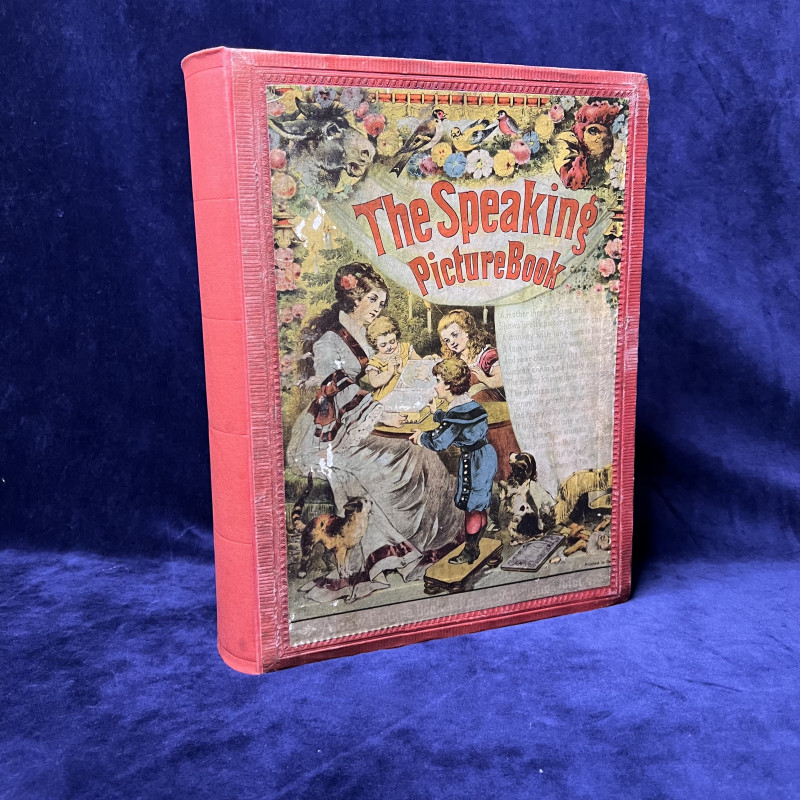
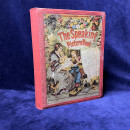
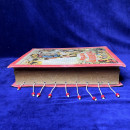
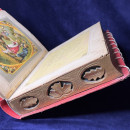
Book Description
The Speaking Picture Book: A new Picture Book with Characteristically Voices. London: H. Gravel & Co. Made in Germany. Ca. 1890s
(300 x 230 x 60mm) 8 illustrations of animals with facing page poetry + title page + informative pastedown. Red cloth binding with stamped edge decoration; chromolithograph plate as cover image with title, text, and vignette of mother playing with children and pets. The 8 card boar pages sit on top of the speaking mechanism, housed in a gilt wooden box with ornate sound vents. 9 tabs with red wooden beads produce 9 voices. Scuffing to cover illustration. Smudges throughout. Historic tape-based repair to the Donkey has left the page stiff. An historic child has drawn lines in purple crayon to Mama and Papa. Bumping to corners. Rebacked. Strings and tabs not original, but an early intervention. The bellows are original, some of the strings are original with indication of historic (early 20th c.) replacements. All sounds function.
Dealer Notes
The fact this toy, manufactured in Nuremberg, has survived— with the evidence of a real-life kid playing with it through the crayon doodles on the final page— is amazing. It has been repaired over the course of its 120 year lifespan, and you can almost see the diligent parent, unscrewing the back page to reveal the inner workings and bellows, trying to fix an over-loved sound that has been pulled too hard and too frequently.
Each of the 8 pages with accompanying poetry has an arrow pointing to the tab to be pulled to produce the sound of the cock, donkey, lamb, birds, cow, cuckoo, goat, Mama, and Papa.
The patent for this sound-producing book was registered in Germany in 1878 and a year later in England. The book was very popular, with translations from German into French, Spanish, and English, but few survive and even fewer with all the sounds working. The box housing the bellows mechanism is a delicate wood with the sound vents easily punched out. The bellows are made of paper and straws, pulled by strings. The book was intended for children— notorious destroyers of the fragile. None of the examples housed in the British Library and two Cambridge libraries are completely functional.
The illustration on the cover shows an sweet scene of a Victorian, lace-frilled mama surrounded by her three children, cat and dog, all of whom have cast aside a copy of the Strewwelpeter (a nod at the German origin of the book’s technology) and a puppet; they are enraptured by the the Speaking Book, which is pictured on its own cover. Captivate your kids with German technology!
Each of the 8 pages with accompanying poetry has an arrow pointing to the tab to be pulled to produce the sound of the cock, donkey, lamb, birds, cow, cuckoo, goat, Mama, and Papa.
The patent for this sound-producing book was registered in Germany in 1878 and a year later in England. The book was very popular, with translations from German into French, Spanish, and English, but few survive and even fewer with all the sounds working. The box housing the bellows mechanism is a delicate wood with the sound vents easily punched out. The bellows are made of paper and straws, pulled by strings. The book was intended for children— notorious destroyers of the fragile. None of the examples housed in the British Library and two Cambridge libraries are completely functional.
The illustration on the cover shows an sweet scene of a Victorian, lace-frilled mama surrounded by her three children, cat and dog, all of whom have cast aside a copy of the Strewwelpeter (a nod at the German origin of the book’s technology) and a puppet; they are enraptured by the the Speaking Book, which is pictured on its own cover. Captivate your kids with German technology!
Author
N/A
Date
1893
Binding
Red publisher's cloth with chromolithographic illustration
Publisher
London: H. Gravel & Co.
Condition
GOOD
Pages
8
Friends of the PBFA
For £10 get free entry to our fairs, updates from the PBFA and more.
Please email info@pbfa.org for more information
